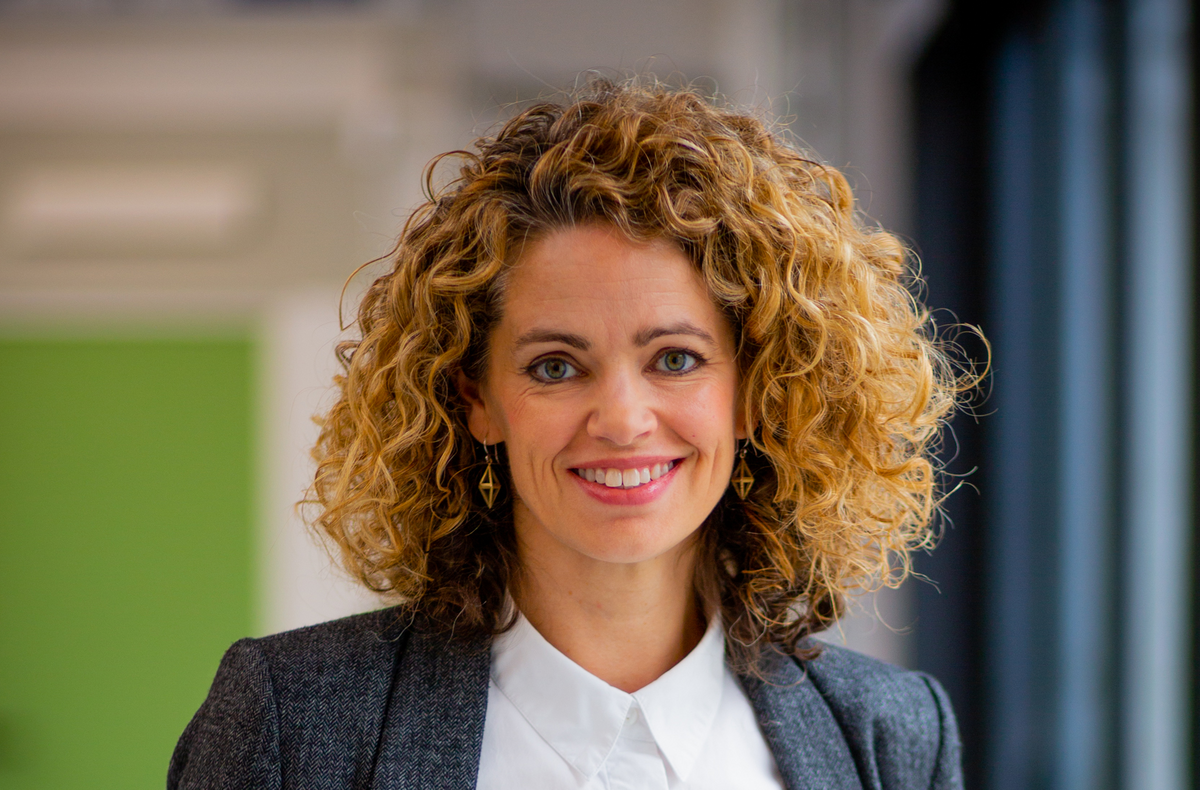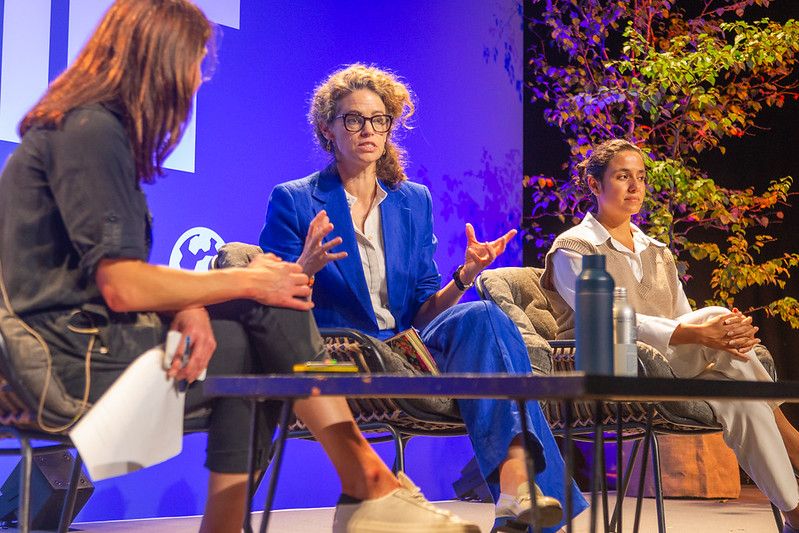ClientEarth CEO: More lawsuits against company directors ‘will absolutely come’

Corporate boards have only just seen the start of climate litigation, according to the boss of ClientEarth.
Speaking to The Wave ahead of a talk at the Blue Earth Summit in Bristol, UK, CEO Laura Clarke says her organisation is making a “big push” on linking fiduciary duties and climate change, and she expects a slew of lawsuits to be brought in future.
ClientEarth made history last year by suing the board of Shell. Launching the first case seeking to hold company directors personally liable for failing to properly prepare for the energy transition, it argued as a minority shareholder that Shell directors had breached their legal duties under the UK Companies Act.
The derivative action (being litigated by law firm Pallas) was dismissed the following summer. The judge said it was up to directors to determine how best to promote a company's success and the duties ClientEarth had tried to hold it to were too vague. He noted ClientEarth’s very small stake in Shell, saying this “gives rise to a very clear inference that its real interest is not in how best to promote the success of Shell for the benefit of its members as a whole”.
ClientEarth was also subsequently ordered to pay all Shell’s legal costs.
'Material and forseeable risks'
According to lawyers at Dentons, the court accepted that Shell faces material and foreseeable risks as a result of climate change which have or could have a material effect on it: “This finding will not be lost on others seeking to bring ESG claims.”
But legal commentators generally had a negative view of the outcome. Cleary Gottlieb said this kind of claim “may no longer be a viable means of seeking to challenge organisations on their ESG policies, because the risk of an adverse costs order is a significant disincentive for NGOs and other parties who seek to bring these types of claims".
Furthermore, they said, the judgment raises difficult issues about whether private litigation is a good way of enforcing ESG-related obligations, "and whether private parties such as NGOs are the appropriate parties to seek to police any ESG-related obligations, or whether that is a role best performed by the authorities”.
A similar case brought by beneficiaries of the Universities Superannuation Scheme arguing that their pension fund breached their duties by continuing to invest in fossil fuels was also dismissed by a UK court this year.

Nonetheless, ClientEarth is appealing the Shell decision and Clarke is adamant that this is only the beginning of the story. She argues that a “proper interpretation” of the UK’s Companies Act shows that directors have a legal requirement to manage environmental risk.
She also wants to establish this idea globally.
“There’s lots of really positive cross-pollination," says Clarke. "So we bring the case against Shell but, you know, we can bring similar pieces in different jurisdictions making the same point. Really we just need to be making sure that we're interpreting legislation that was of its time in the current context of the environmental crises that we face.”
Legal experts and campaigners have been previsaging a wave of climate litigation against company directors for a while.
The litigative US has seen claims of fiduciary duty breaches based on allegedly misleading statements about climate-related risks, such as that against Exxon. And earlier this week, students filed complaints against six universities arguing that investments in fossil fuels violated their fiduciary duties to act in the public interest.
In the Netherlands, NGO Milieudefensie warned Shell's directors they "risk future personal liability" by failing to implement a court order to cut the company's emissions - even while an appeal is ongoing. A spokesperson told The Wave this is still a serious option.
But this trickle of cases has not yet built into anything substantial.
Clarke remains adamant that its time “will absolutely come”.
“At the moment, people are a little bit blinded by the massive short-term returns on their fossil fuels because of Russia’s war on Ukraine; there’s so much money coming in. But actually if you look out to the medium term, if you're not considering climate risk or biodiversity risk… then you're not doing your job properly.”
Two days after our interview, the UK's Law Society published guidance for solicitors on advising company boards on climate risk.
Shifting mindsets
ClientEarth, which Clarke has led since November 2022, taking over from James Thornton who remains as president, works across the “whole lifecycle of the law”. It advocates for strong environmental legislation, trains judges, lawyers and prosecutors, and educates community and indigenous groups on how they can defend their own rights.
But it remains best known for its litigation, having brought high-profile cases on climate change, pollution, plastics and other environmental issues around the world - and often winning them.
Evaluating the success of those cases is “really hard”, Clarke admits. Winning a case in court and securing a remedy is of course one good outcome. “But it's also around the changes that we're seeing in terms of companies mainstreaming what they're doing on environmental issues.”
When the lawsuit against Shell’s board was launched, ClientEarth heard from multiple sources that it was being discussed in boardrooms around the country, by general counsels and at conferences. “They wanted to know ‘How do we avoid this sort of litigation?’ “Obviously you want the case to go all the way and you want to win it and, you know, we're still optimistic that we can get a better hearing [in the Shell case] and we can progress it. But it’s already shifting mindsets and calculations just by bringing it.”
Investors are also getting more engaged, says Clarke. She describes a conversation with an asset manager with a stake in a company subject to litigation from ClientEarth who had not known about the legal case. “They kind of swept it under the carpet. We have to make sure that these asset managers really know about this information.”
Global reach
Clarke sees it a “sign of real success” that so many more people are using environmental and climate litigation. “The trick is how you work within the wider movement and work out exactly what your particular unique selling point is.”
ClientEarth’s USP, she says, is its global reach. Although it began in the UK, the organisation now operates in 60 countries across Asia and the Pacific, Europe, North America, Africa and China. “We work across multiple different jurisdictions, but also areas of law. And we're really focused on that global impact. So bringing cases that will have a really strategic impact, not just in that particular instance.”
ClientEarth is a master of strategic litigation, picking choice cases “to really shine a light and make an example of the laggards”.
But sometimes it has to step down from fronting a case, ceding to a local organisation that has legal standing or a better understanding of the wider context.
Clarke says ClientEarth works hard to try to “deconflict with what others are doing”. “So for example, we're just getting going in North America. There's lots of environmental litigation happening in North America but the area that is a particular niche for us and where others in the movement really welcome our engagement is on the corporate and financial law side.
“So really focusing in on what a big corporation is doing, how is money flowing, looking at pensions, looking at banks, looking at things like asset retirement obligations.”
But collaboration has its limits. I ask Clarke about the dynamic in last year’s UK case against the government’s net zero strategy, where ClientEarth was one of three organisations to bring very similar claims; the court ordered them to be heard jointly. (There were also individuals who had wanted to bring claims but were trumped by the big fish in the environmental litigation pond).
“It’s not an exact science,” she admits. “Of course, every organisation wants to have its own profile. But I always think the most important thing is that you're really thinking that we are part of a wider movement and that really as much as possible, avoiding duplication”.
In the latest challenge, where the three organisations are returning to court to challenge the UK’s government revised strategy, they appear to be working better together from the start. “We’ve coordinated very closely,” says Clarke. “But we're taking slightly different points of law so, you know, we're coming at it from slightly different perspectives.
“Is there more that we could do upstream? Yeah, I think that there absolutely is and that's something that the funders in the movement are very keen on as well.”
